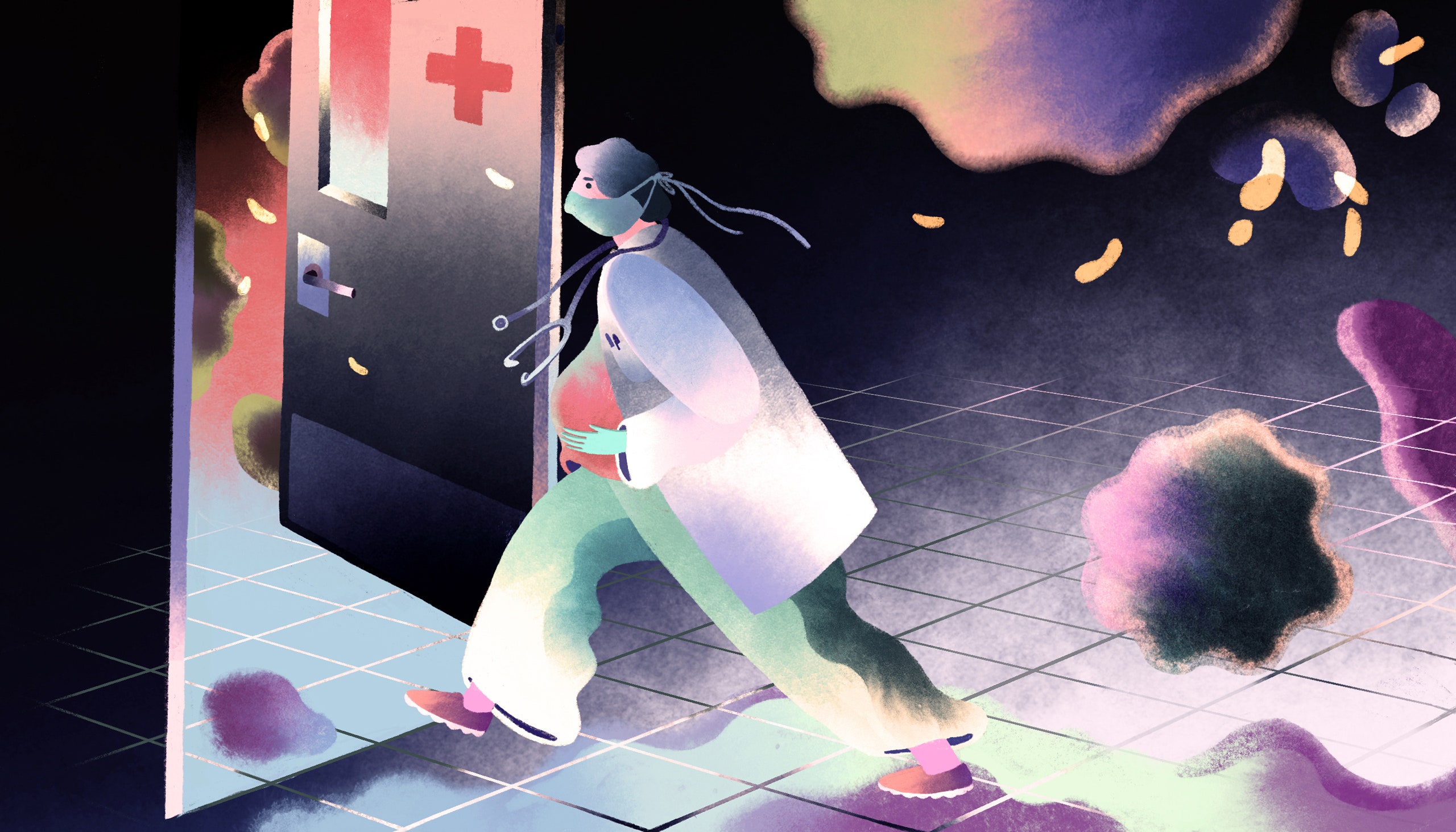
The novel coronavirus, SARS-Cov-2 or COVID-19, is one of the most contagious human viral infections. The death rates from those tested and known to be infected vary by country. They are 5.9% in Canada and the USA but 15.6% in Great Britain. These could be an underestimation because they only reflect those tested for infection and many are not tested and not all deaths due to COVID are identified.
Frontline health care workers (doctors, nurses, physician assistants, EMS personnel, pharmacists, aides in nursing homes, hospital janitors, many others) are the most at-risk individuals in the fight against the pandemic because their infection rates far exceed those of the general population. In Ontario, Canada, they account for 1 in 7 infections overall, their infection rate is 9-10 times greater than the general population, and a disproportionate number (73%) are women. More than half state they contracted the infection while at work. As a consequence, these workers are at heightened risk for severe and perhaps even traumatic stress and may be among the most stressed people in any population experiencing COVID infections and lockdowns.
This increased risk of extreme stress derives because frontline providers are subject not only to the same stresses and concerns as the general population, but also to the added threats of witnessing death and trauma in others, becoming infected, working long shifts, having few days off, or worse, due to their job requirements. Furthermore, these potentially traumatic exposures may be exacerbated by worry about not having enough protective equipment and bringing the virus home to infect their families and by a lack of the usual social and personal supports that accompany self-isolation and social distancing.
The stress experienced by pregnant (and perhaps pre-conception) health care workers and partners of pregnant (and perhaps pre-conception) women may be especially intense because of the added concerns about the health of the fetus. Prenatal maternal stress (PNMS) is a recognized public health concern: PNMS leads to shorter gestations, smaller babies, increased obstetric complications, and may set an adverse lifetime health trajectory for the offspring.
Children of PNMS pregnancies have higher rates and earlier onset of overweight/obesity, type 2 diabetes, and high blood pressure. These children also show poorer cognitive and language development and more behaviour problems, with persisting effects into adolescence and possible adulthood. Contemporary data also demonstrates that stressed fathers can pass the adverse effects of these stresses on to their offspring at conception through epigenetic alterations of sperm DNA and changes in the constituents of semen.
There is an urgent need to understand the effects of traumatic stress in pre-conception and pregnant mothers and fathers who are frontline providers in the COVID-19 pandemic. There is an equally unmet urgent need to develop and test interventions to reduce stress and increase resilience in these workers.
The purposes of our study are to assess the stress and resilience levels and to administer a randomized controlled trial of an innovative and simple intervention to reduce stress and anxiety and promote resilience in this very special group of frontline health care providers.
We hypothesize that these women and men will have extremely high stress levels, but that our interventions will reduce stress and increase resilience. Subsequent follow-up studies will examine the outcomes of the pregnancies.
Selected outcomes
This study will help understand the effects of traumatic stress in pre-conception and pregnant mothers and fathers who are frontline care providers working through the COVID-19 pandemic. It will also develop and test an intervention to reduce stress and increase resilience in these workers.